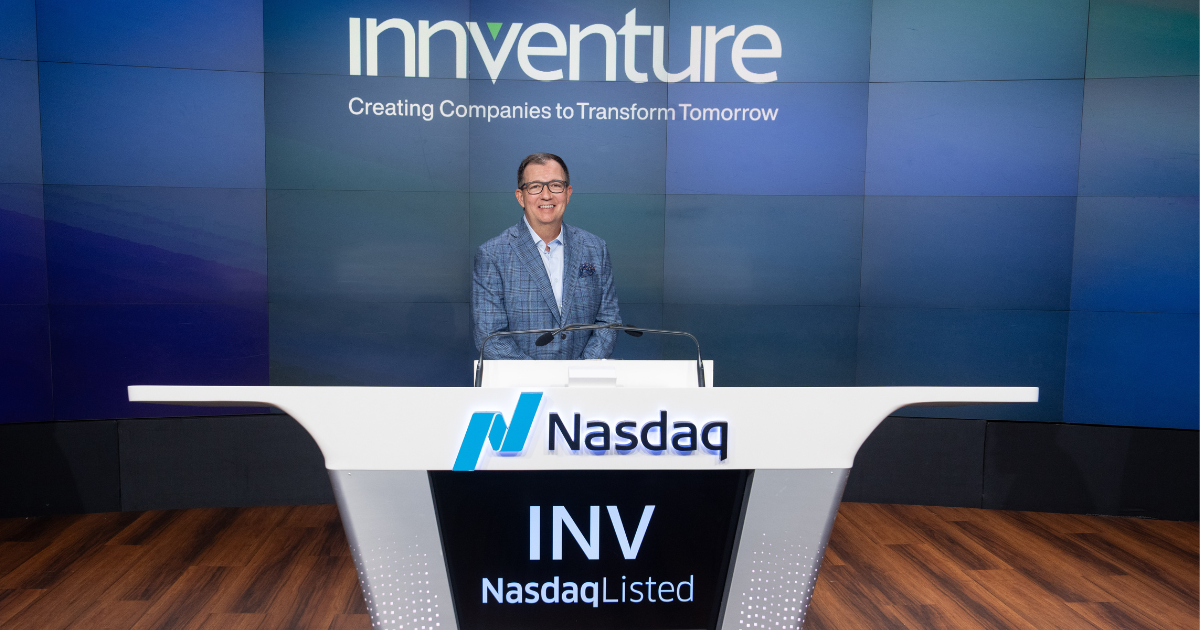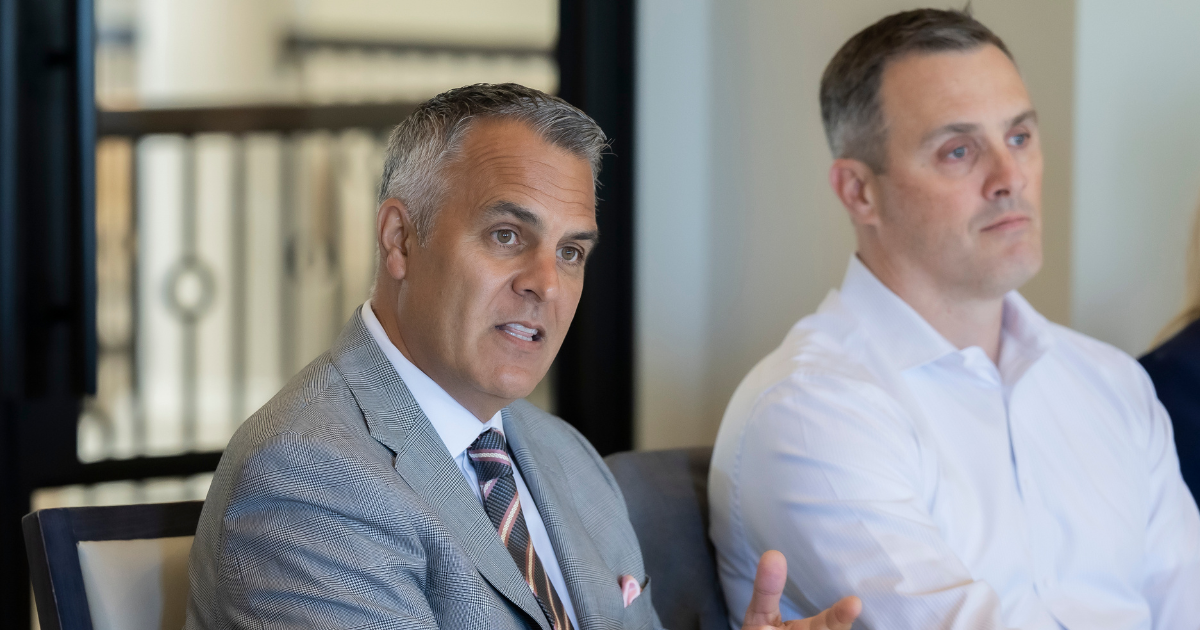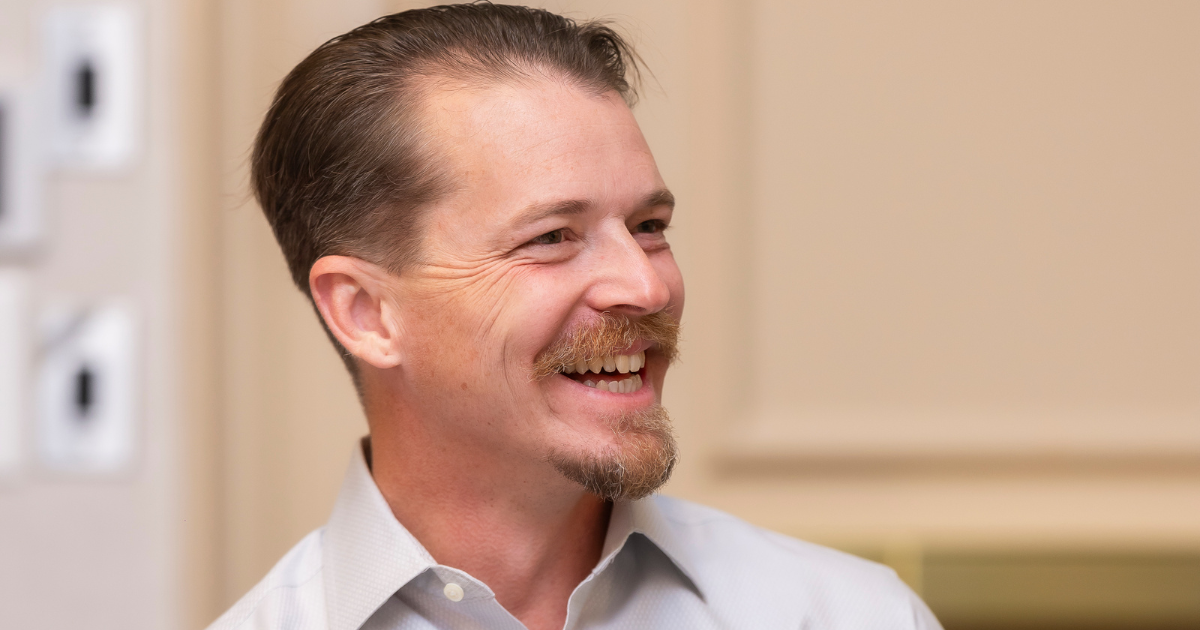Mike Otworth, Executive Chairman and co-founder of Innventure, shares insights on commercializing transformational technologies and building teams that excel in early-stage innovation. Listen to the full episode on Tech Talks Daily here.
Neil Hughes: Can you tell everyone listening a little about who you are and what you do?
Mike Otworth: I'm Mike Otworth, Executive Chairman of a company called Innventure. I was one of the founders of that company. Our purpose is to address compelling global unmet needs with new emerging technologies. Those technologies typically originate with big multinational companies from their R&D efforts, and they might come to us because we are experienced at rapid commercialization of technologies of a more transformational nature. This is something that big companies oftentimes don't do, or they certainly aren't an expert at it.
What's your origin story and journey that led you to Innventure?
Otworth: I started off like a lot of young people, not knowing really what I wanted to do. My first employment was actually working in Washington, D.C. on Capitol Hill, and it took me maybe two years to fully understand that that was not what I wanted to do as a career.
By serendipity, I became connected to some highly placed scientists working on different government programs who had decided they wanted to apply their expertise to solving problems of a more commercial nature. They started a company in Florida called XL Vision. I managed to get a position there, and they figured out that I added some value beyond what I was hired to do initially, which was really run HR and administration.
By sitting in on meetings and listening carefully, figuring out how these guys think and how they go about addressing compelling problems with completely new approaches from a technology standpoint, I found it fascinating and ultimately decided that was what I wanted to do as my life's work. I've been working in the early-stage technology domain since the mid-90s.
What advantages do smaller businesses have when competing against established players with significant resources?
Otworth: One of the things that became apparent to me early on was that you have to be open to adaptations in the business model when you're executing something early stage. We actually have a term for it: adaptive strategic positioning. When you're in a smaller company, it's easier to do that and you can do it more quickly.
Invariably, you find out things that are different than some of your original assumptions. You find out that things are changing in the competitive landscape, find out that the technology will do some things that you didn't know it would. You may find out it won't do some things you thought it would do. All kinds of things change, and you have to change with it. That requires the ability to rapidly make course corrections on the fly. The bigger the company is, typically, the harder it is to execute that type of rapid change mentality.
How do you identify people who can handle the uncertainty of early-stage innovation?
Otworth: It's a difficult thing to do. Early-stage companies are rife with both opportunities and challenges. You have to encourage people to be introspective and realistic about what their own personal risk-reward profiles look like. You have to make sure that people are comfortable working in an environment where there may not have been a person in that position before. They're doing it for the first time in that company, so the position may not even be completely well-defined.
I really try to make sure that people understand we're going to give you a clear vision of where we are today with regard to your role and where we're trying to get to, but to a fair degree, you're going to have to figure out how to get from point A to point B on your own and proactively go about figuring it out. People who work in a more task-oriented way, where they work on an assignment and when they get done with an assignment, they sit and wait for somebody to come and tell them what to do next - that typically doesn't work really well in our environment.
What leadership qualities are most important when attempting to commercialize complex technologies?
Otworth: First and foremost, I would say having a good sense of how to formulate strategy. When you're operating in an environment that's evolving, you have to be able to look at a lot of disparate data points and understand how that's going to impact the strategy that's going to lead to success.
A high threshold for pain, I would say, is pretty important. You have to have pretty thick skin, and you have to not be discouraged when you're going to run into problems and challenges. You just have to dig in and be able to overcome those challenges, and sometimes the solution lies in starting with a blank sheet of paper and asking yourself, hey, are there ways that we should be doing this completely differently. That can be an interesting process, but really disconcerting for some people who aren't used to it.
I saw you mentioned "hiring athletes" in an article. What did you mean by that?
Otworth: It's important because you need people with the mindset of an athlete - that competitive spirit, that determination to overcome adversity when you face it, that willingness to take on a challenge, even if it's a completely new challenge to you.
As the company grows and scales, if you have these people with these kind of attributes of an athlete, you can often apply them to different areas of the company. And they're willing to take on those new challenges. I think when you look at our companies and you talk to somebody that's been there for a few years, there's a good chance they're doing something completely different than what they were hired to do. And that's OK. I view it as actually good. It's because that person has grown in their career. They've got the innate capabilities to do other things than what we hired them to do.
What would you say is the most important team building principle that drives innovation success?
Otworth: I think keeping people focused on the big picture. In our companies, everybody has an equity interest, either in the parent company or the individual companies or both. What's important is that we're meeting our big picture goals, not who's getting credit for this or that.
That's really part of the core mentality of team building - hey, we're trying to succeed as a team, we're trying to accomplish the big picture goals. This isn't a set of individual contests regarding how we do as individuals. We all want to succeed as individuals, but as management, we don't overly focus on that. We focus on are we meeting the objectives of the company, and is everybody kind of pulling together to try to meet those objectives. It doesn't matter who found this source of capital, or brought them in, or this source of technology. What matters is that we're succeeding.
Who has been your most influential mentor in your career journey?
Otworth: There absolutely is one in particular. His name is John Scott, Dr. John Scott. He was part of the founding team of the original Excel Vision, which then became Excel Tech Group. John holds PhDs in physics and high energy astrophysics. He has done a number of really fascinating things in his career, including being director of the directed energy part of the Star Wars program, which was called Strategic Defense Initiative when I worked on Capitol Hill.
He's an extremely smart person, very charismatic. Has very strong opinions, often he applies no filter when expressing those opinions, which always made it interesting in the workplace. He can look at a new technology and very quickly sort out what's really important versus what's not important, and what the critical factors are with regards to whether there's going to be a successful place in the marketplace for a technology. A lot of what I learned, I learned from him and my exposure to him. I probably would have worked for half of what you paid me back in the day, just because it was so both fascinating and entertaining working with and around him.
Where can people find out more information about you and your work?
Otworth: They can go to our website and we have a good listing of individuals that they can reach out to. If they have technology that they'd like to talk to us about, of course, that's fine. If they want to talk to us about employment opportunities, they can find our HR person, Heather Vickers, online or on LinkedIn. We're always looking for sharp, motivated people. And if they're a multinational company who thinks they might have technologies that might be transformational and could be accelerated maybe externally better, of course, we have a business development team who's always out there looking for new partners.
Listen to the full episode on Tech Talks Daily here.
This interview was conducted by Neil Hughes on Tech Talks Daily. Innventure specializes in rapid commercialization of transformational technologies, partnering with multinational companies to bring emerging innovations to market.

-min.jpeg)




